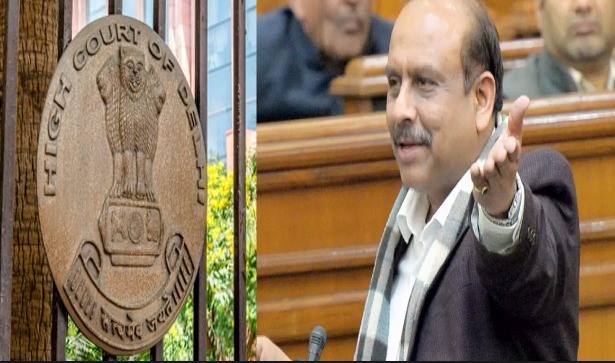
The Delhi High Court on Friday granted Bharatiya Janata Party (BJP) Member of Legislative Assembly (MLA) Vijender Gupta permission to attend the Delhi assembly from Monday for the remainder of the budget session.
Justice Prathiba M Singh considered Rule 277 of the Rules of Procedure and Conduct of Business, Legislative Assembly of National Capital Territory of Delhi, which states that a suspension can only be for three sittings in one session, on the first occasion.
“Under 277(1), the speaker can direct any member to be suspended for the remainder of the day if the conduct is disorderly. Under 3(a) and 3(b), suspension on the first occasion would be for three sittings, on the second for seven sittings, and the third for the remainder of the session,” the single-judge stated.
As a result, despite the fact that Gupta had already been suspended for four days and had served the three-day suspension in effect, he was permitted to return to the assembly.
“The record of proceedings shows that this was the petitioner’s first suspension.” As a result, under Rule 277 (3) (b), the suspension could only have been for three days.”
The judge further remarked that a review of the summary of proceedings revealed that there was disruption caused by both the petitioner and ruling party members.
“It goes without saying that members of the legislative assembly or any elected house must maintain their dignity.”
While dismissing the plea, Justice Singh stated that Vijender Gupta must also uphold the dignity of the house.
According to the legallyspeakings sources, Delhi Assembly Speaker Ram Niwas Goel has prevented Gupta from participating in the house proceedings until the next budget session.
Gupta’s suspension was recommended by AAP MLA Sanjeev Jha, who said he frequently disrupted House proceedings.
Gupta had written a letter to the speaker proposing a breach of privilege motion against Finance Minister Kailash Gahlot and Environment Minister Gopal Rai, claiming that the budget contents were leaked on social media before the budget was presented in the house.
During today’s hearing, Senior Advocate Jayant Mehta, who represented Gupta, contended that suspension should be done in a graded manner, as per Rule 277. As a result, in the case of the first suspension, it may only be for three sittings. Gupta, on the other hand, had been ordered to be suspended for one year.
It was also argued that in this case, the suspension was imposed by the house rather than the speaker. As a result, the house was fully empowered to issue punishments of a severe nature.
Gupta contended in his petition that the speaker’s order is unjust, unfair, and irrational, and that it was passed in violation of the Rules of Procedure and Conduct of Business of the Legislative Assembly of the National Capital Territory of Delhi.
The contested action of the Hon’ble Speaker in allowing a ruling party MLA to move and proceed with a motion to seek suspension of the petitioner from the House for a period of one year does not fall under the definition of “irregular proceedings,” but rather is a classic case of being categorised as “gross illegal” and “unlawful” but also contravention/violation of fundamental rights of the petitioner under Articles 14 and 19 of the Constitution of India,” the plea stated.
Gupta further stated that the AAP members’ behaviour was particularly unruly and disorderly.
“A review of the proceedings for the entire day, i.e. 21.03.2023, clearly shows that the Hon’ble Speaker’s actions of treating the MLAs of the ruling party and the petitioner, who is a member of the opposition party, in different ways were totally arbitrary; not being impartial and partisan in nature.”




